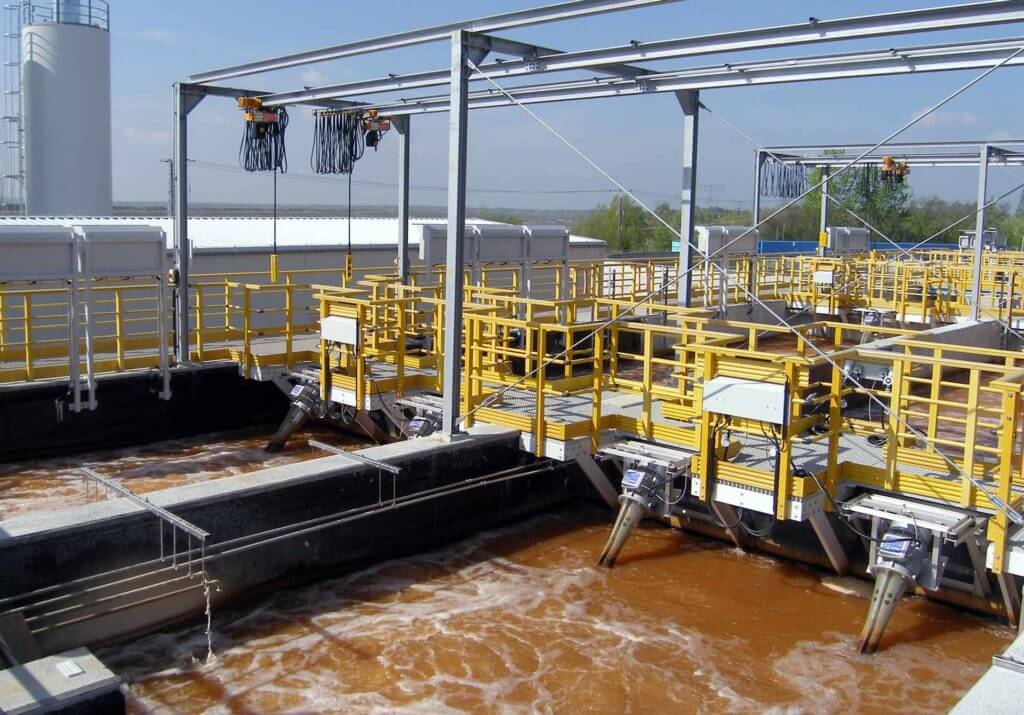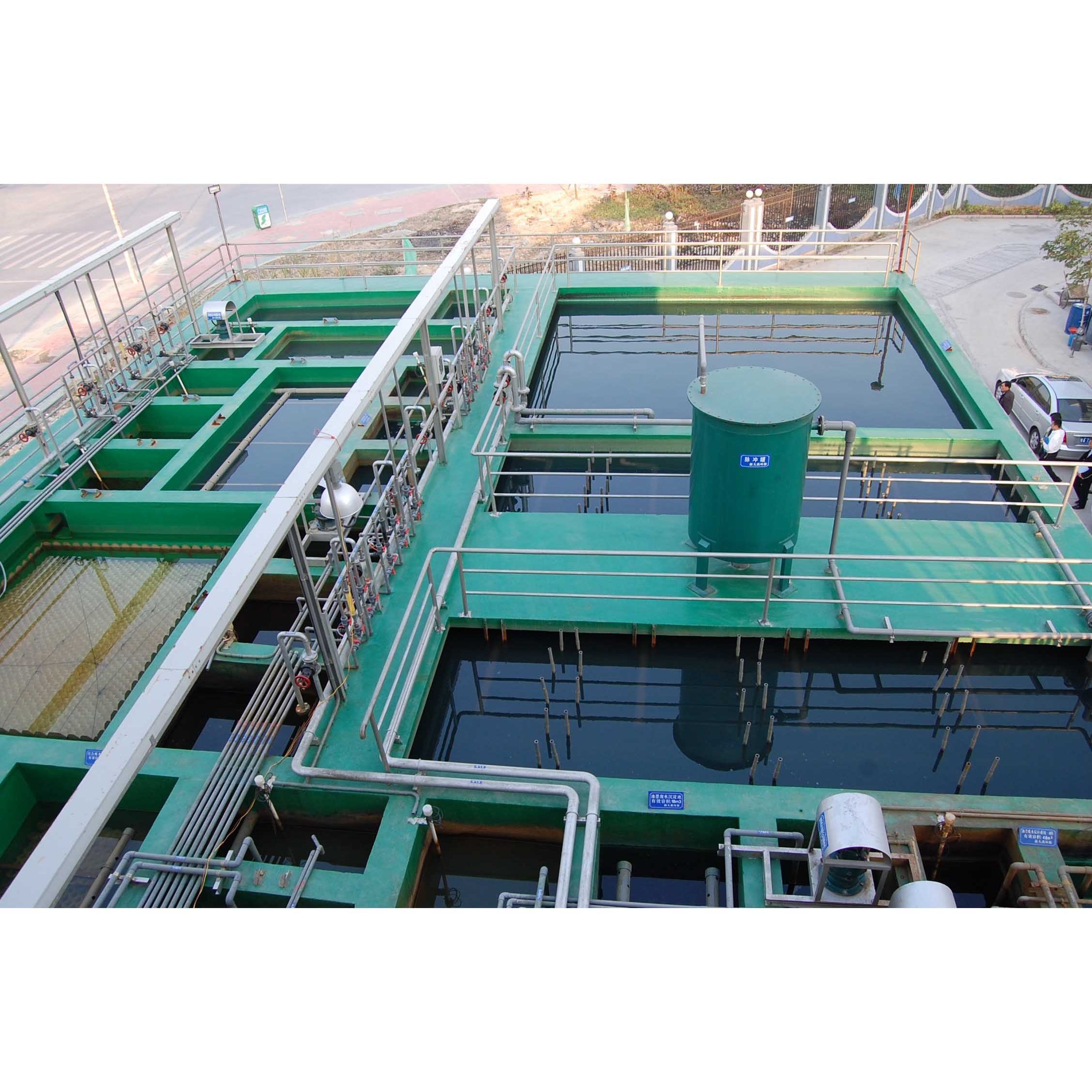Industrial Waste Water Treatment-- Boost Effectiveness with Custom-made Water Treatment Solutions
Obstacles and Solutions in Industrial Waste Water Therapy
The therapy of industrial wastewater offers a diverse variety of difficulties, ranging from rigid regulatory conformity to the complexities of cost management and technical constraints. The variability in waste make-up further makes complex the effectiveness of conventional therapy approaches, often causing escalated operational expenses. Arising remedies such as sophisticated oxidation procedures and innovative funding versions show pledge in attending to these problems. As markets grapple with the requirement for sustainable practices, the question remains: what techniques will ultimately result in an equilibrium in between compliance, cost-efficiency, and ecological duty?
Regulatory Conformity Challenges
Exactly how can industrial centers browse the complex landscape of regulative conformity in wastewater therapy? The governing structure governing wastewater monitoring is complex, commonly differing by jurisdiction and kind of sector. Facilities has to stick to federal, state, and local guidelines that determine effluent quality requirements, discharge restrictions, and monitoring demands. Failure to conform can lead to severe charges, including fines and operational closures.
To efficiently manage these compliance difficulties, facilities ought to carry out durable surveillance and reporting systems that make sure real-time information collection and evaluation. Routine audits and risk assessments can identify possible compliance gaps, permitting positive changes in treatment procedures. Staff member training programs focusing on governing expertise and ideal methods are vital to promote a culture of compliance within the organization.
In addition, involving with regulative firms can provide beneficial understandings and clarify uncertain guidelines. Facilities may likewise gain from seeking advice from with ecological experts who specialize in wastewater therapy conformity, making sure that they remain informed of developing regulations. By embracing these techniques, industrial facilities can not just satisfy compliance needs but additionally improve their functional efficiency and environmental stewardship.
Price and Financial Obstacles
Browsing governing conformity in wastewater treatment typically offers significant financial obstacles for commercial facilities. The prices connected with implementing essential therapy modern technologies, maintaining conformity with stringent policies, and managing functional expenses can be discouraging. Lots of organizations deal with high preliminary funding expenses for the building or upgrading of wastewater therapy plants, which may strain budget plans, especially for medium-sized and little business.
Moreover, ongoing functional costs, including upkeep, labor, and chemical inputs, add to the economic worry. The unpredictability of rising and fall power rates and the prospective need for extra investments to fulfill progressing policies exacerbate these economic pressures. In numerous instances, the absence of financial incentives or support from federal government bodies makes it much more difficult for companies to warrant financial investments in innovative therapy systems.
Furthermore, the economic viability of wastewater therapy solutions is usually examined, particularly for sectors with tight revenue margins. Therefore, it is important for industrial centers to check out affordable strategies, such as taking on innovative funding options, participating in partnerships, and leveraging emerging modern technologies that can assist reduce these economic barriers while making certain compliance with environmental standards.

Technical Limitations
Countless technological restrictions impede the performance of industrial wastewater therapy procedures. One significant challenge is the inadequacy of existing therapy technologies to attend to intricate contaminants.
In addition, the scalability of treatment innovations presents a difficulty. While some This Site advanced approaches, like membrane layer filtration or sophisticated oxidation, reveal pledge in controlled settings, their execution on a larger range can be technically difficult and prohibitively expensive. Upkeep and functional complexities even more make complex the adoption of these systems, particularly for smaller markets with limited technological know-how.
The integration of real-time surveillance innovations additionally stays insufficient in many therapy facilities. Without effective tracking systems, drivers can not effectively assess treatment efficiency or find prospective failures, leading to inconsistent effluent quality. Dealing with these technological limitations with research and development, along with financial investment in cutting-edge remedies, is important for enhancing the effectiveness of commercial wastewater therapy and making certain governing conformity.
Variability in Waste Make-up
In the realm of commercial wastewater treatment, the irregularity in waste make-up provides an awesome obstacle. Industries generate wastewater with diverse attributes, influenced by variables such as production processes, resources, and functional practices. This diversification makes complex the treatment procedure, as standard systems typically have a hard time to successfully attend to the large range of toxins present.
For example, wastewater from food processing might have high degrees of organic issue, while effluents from chemical production can consist of dangerous substances and hefty metals. This variation necessitates versatile therapy techniques to ensure more conformity with ecological policies and safeguard public wellness. Furthermore, variations in waste structure can happen over time, affected by adjustments in production routines, maintenance activities, or the intro of brand-new items.

Ingenious Therapy Solutions
Ingenious treatment remedies are crucial for dealing with the complexities of commercial wastewater management. Conventional approaches typically drop brief in effectively getting rid of a broad array of pollutants, specifically in facilities with varied effluent streams. Recent innovations concentrate on integrating sophisticated technologies to boost therapy performance and sustainability.
One promising approach is making use of innovative oxidation procedures (AOPs), which utilize effective oxidants to deteriorate organic toxins. AOPs, including photocatalysis and ozonation, can substantially decrease harmful compounds and improve effluent high quality. Additionally, membrane bioreactor (MBR) innovation has actually acquired grip, incorporating biological therapy with membrane purification, causing top quality effluent and decreased impact.
One more innovative option is the implementation of resource healing systems. Strategies like anaerobic digestion not only treat wastewater but also produce biogas, which can be used as a renewable resource source. The adoption of man-made intelligence and machine learning designs can enhance treatment procedures by anticipating variants in wastewater composition, thus boosting operational efficiency.
These ingenious solutions not only address regulatory compliance however additionally advertise environmental sustainability, leading the way for a much more resistant and effective commercial ecological community.
Verdict
To conclude, addressing the challenges of commercial wastewater treatment calls for a multifaceted method that integrates governing conformity, price management, and technical developments. Ingenious services, such as innovative oxidation processes and membrane layer bioreactor modern my site technology, offer paths to improve treatment effectiveness. Real-time surveillance systems and collaborative engagement with governing agencies can promote sustainable methods while alleviating economic stress. A commitment to continuous improvement in therapy techniques will eventually add to the effective monitoring of industrial wastewater and environmental management.
The therapy of industrial wastewater presents a multifaceted range of difficulties, varying from rigorous governing conformity to the ins and outs of cost administration and technological limitations. Industrial Waste Water Treatment.Navigating governing conformity in wastewater treatment commonly provides substantial financial obstacles for industrial facilities. Resolving these technical limitations with research study and development, along with investment in cutting-edge remedies, is crucial for boosting the effectiveness of commercial wastewater treatment and making certain governing compliance
Wastewater therapy facilities need to spend in robust tracking systems and versatile treatment technologies capable of suiting differing influent characteristics.In final thought, addressing the challenges of industrial wastewater treatment calls for a multifaceted technique that incorporates regulatory compliance, price management, and technological developments.